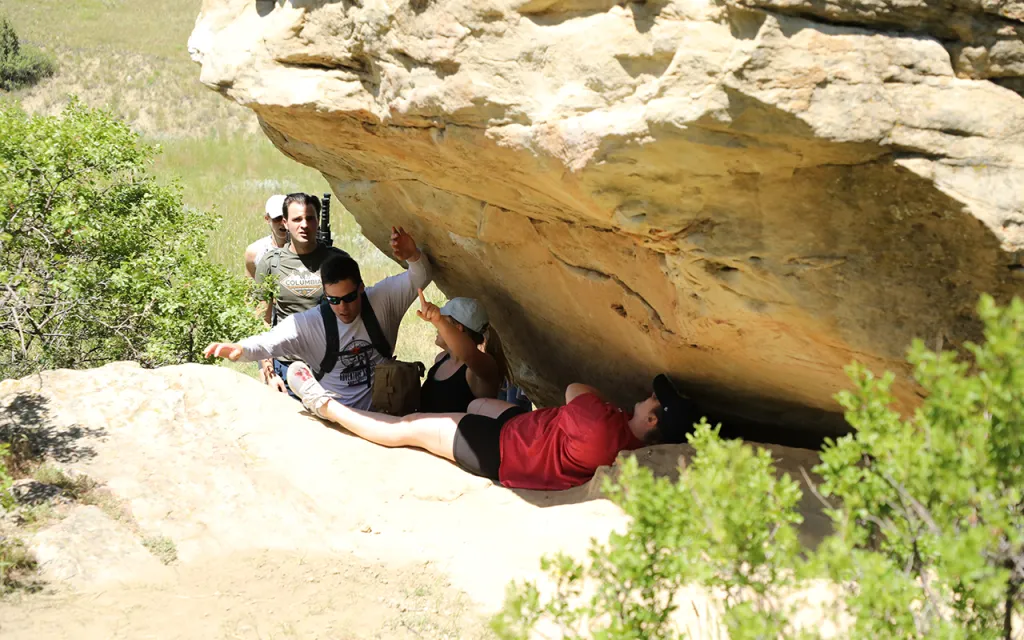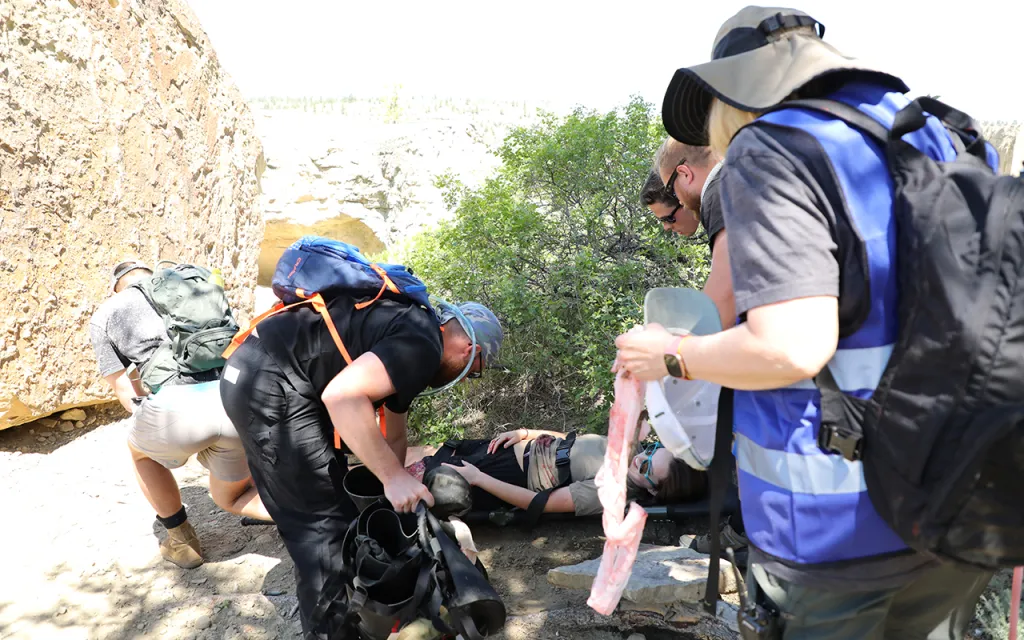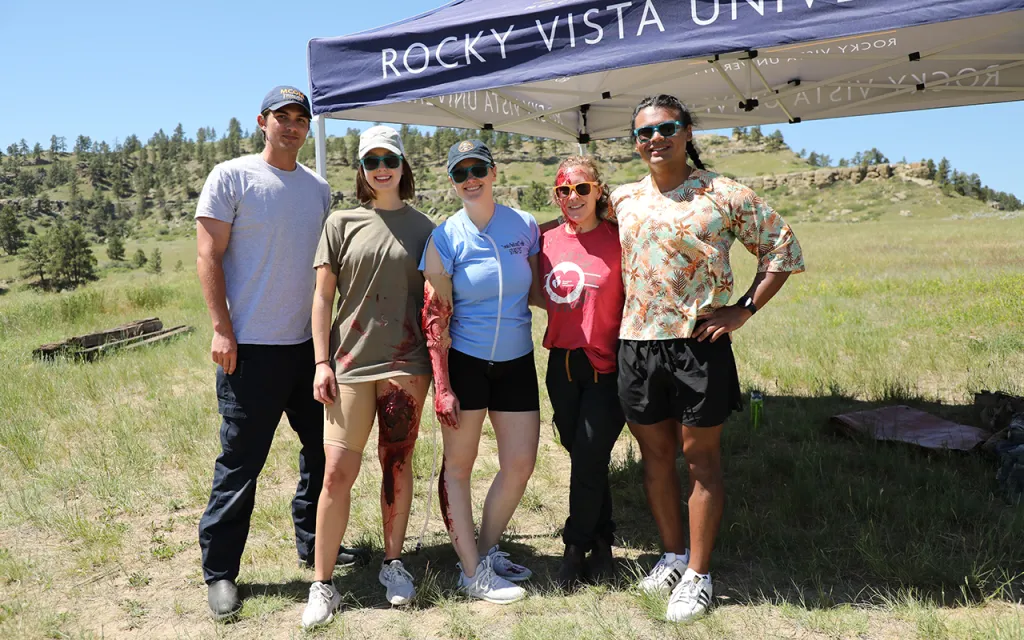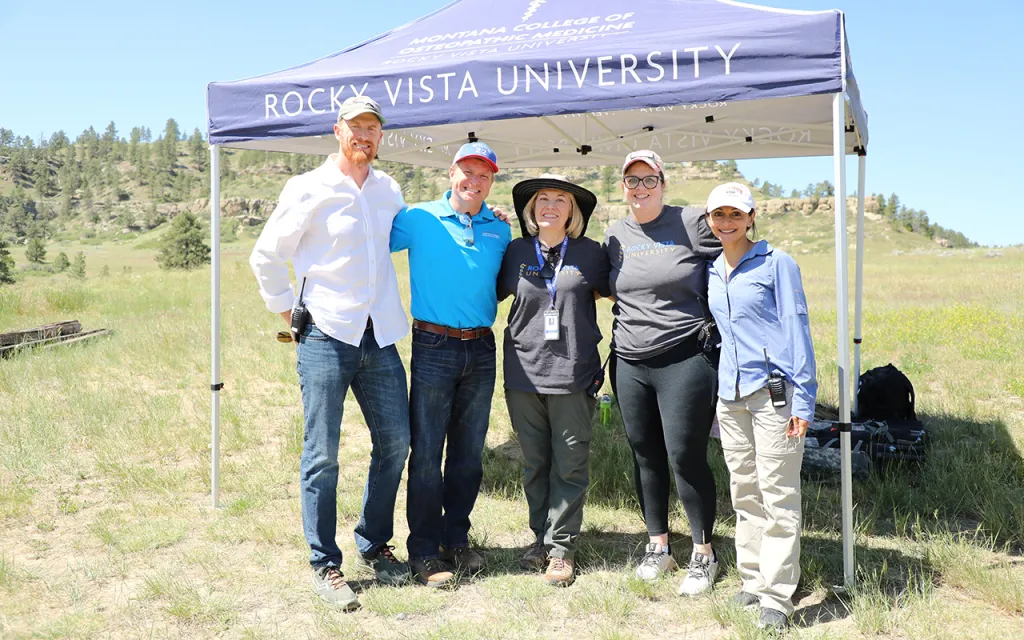RVU-MCOM Ends Academic Year with Mass Casualty Drill at Phipps Park
On Thursday, June 13, RVU-MCOM conducted a comprehensive mass casualty drill at Phipps Park in Billings, providing students with invaluable hands-on experience in managing complex emergency situations.
The drill, simulating a rock fall scenario with multiple casualties, was a crucial part of the training for students in the Military Medicine and Wilderness Medicine tracks.
Students engaged in realistic and high-pressure scenarios designed to test and enhance their emergency response skills. The primary objectives of the exercise were to practice effective communication; implement the principles of Tactical Combat Casualty Care (TCCC); and execute MARCH interventions, focusing on massive hemorrhage, airway management, respiration, circulation, and hypothermia/head injury treatments.
The students demonstrated their ability to maintain clear and effective communication within their teams, with patients, and with external support units during the drill. This aspect of the training underscored the critical importance of coordination and information sharing among first responders, medical teams, and external agencies during a mass casualty event.
Throughout the exercise, students performed detailed trauma patient assessments and triage procedures, showcasing their skills in prioritizing patient care based on the severity of injuries. The use of realistic moulage (injury simulation) provided a high-fidelity training environment that closely mirrored real-life emergency situations, thereby enhancing the students’ decision-making skills and preparedness for actual emergencies.
This drill marked the final simulation event of RVU-MCOM’s first academic year, highlighting the institution’s commitment to providing immersive and practical training experiences. The success of the exercise reflects the dedication of both the students and faculty in preparing future healthcare professionals to effectively respond to real-world emergency situations.
Learn more about the Medical Simulation Center here.



